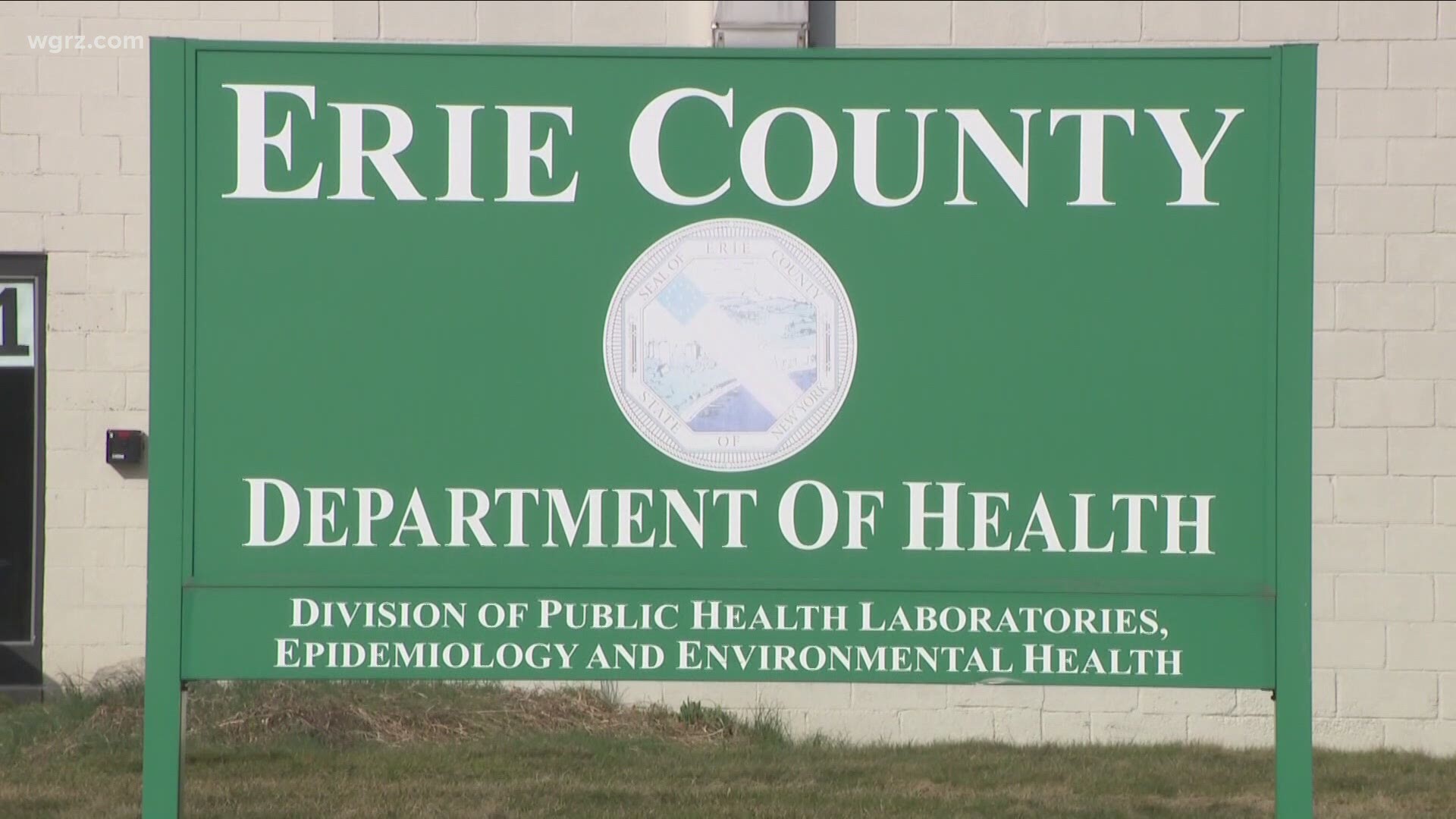BUFFALO, N.Y. — Over the past weeks, Erie County has seen a slow rise in the number of new positive cases of COVID-19.
Now the county's health department is addressing what its data shows is behind the increase.
Epidemiologists look at test results and contact tracing reports daily. Contact tracing allows them to identify potential clusters within businesses, schools, events or other activities.
“A small number of cases can turn into a significant concern quickly,” said Erie County Commissioner of Health Dr. Gale Burstein. “That’s why the measures we are taking to reduce opportunities for COVID transmission are so crucial, and they have to continue.”
As more new cases arise, the likelihood increases that some of those infected will need to be hospitalized at some point. The county says it's not just the elderly who are being hospitalized. As of October 12, the date of the most recent data available, 18 of 45 people (40 percent) hospitalized with COVID-19 in Erie County were under the age of 65.
These are the factors the Erie County Department of Health (ECDOH) says is behind the recent spike in positive test reports:
- Asymptomatic cases who transmit the disease without knowing they are infectious. A recent review by ECDOH of several weeks’ worth of cases showed that more than one-third of cases did not report having COVID symptoms.
- Travel outside the area This includes individuals who return to Erie County from states that are on the NYS Travel Advisory list as those that are experiencing sustained community transmission of COVID-19. It also includes individuals who travel to regional or national events, as those individuals may come in contact with participants from high-risk states.
- Congregate living settings and households with large families or college-age groups, and an unwillingness or inability to isolate or quarantine to prevent transmission within that household.
- Group activities, social gatherings and organized sports where participants are not wearing masks or distancing appropriately.
- Access to testing. ECDOH is working to expand capacity to provide diagnostic COVID tests, and these tests are offered at no cost. With support from NYSDOH, point-of-care testing is available for symptomatic p-12 students and symptomatic school staff in order to get them back to school and work if they have been excluded because of COVID-like symptoms. But most diagnostic tests do not give immediate results, and health insurance companies’ reluctance to cover diagnostic testing for asymptomatic people can be a barrier for testing.
- Prevention fatigue. Recommended non-pharmaceutical interventions (wearing face masks, frequent handwashing, cleaning high-touch surfaces, physical distancing) have become part of many people’s everyday routines. Those behaviors have to continue. People who disregard those recommendations, intentionally or unintentionally, are taking risks with their health and the health of those around them.
2 On Your Side spoke with Roswell Park Comprehensive Cancer Center's Chief of Infectious Disease Dr. Brahm Segal about asymptomatic spread.
"Often what happens is they begin to shed virus just before becoming symptomatic," Segal said. "So during that asymptomatic period they feel fine but they are shedding virus and usually will develop symptoms, although there are some people who have had SARS- CoV-2 infections and never develop symptoms."
In regards to prevention fatigue, Segal said he understands it but urges people to stay vigilant.
"I am certainly aware of the fatigue, I empathize with it completely but ultimately I believe these measures are what we need to keep us safe," he said. "I don't think we need the lockdown… but masking and reasonable social distancing, trying to do more things outside than inside, hand hygiene, these are the simple measures we need to keep ourselves and our community safe."
A list of COVID-19 test sites in the county can be found here. To contact the Erie County COVID-19 hotline or to schedule a diagnostic test, call (716) 858-2929.

